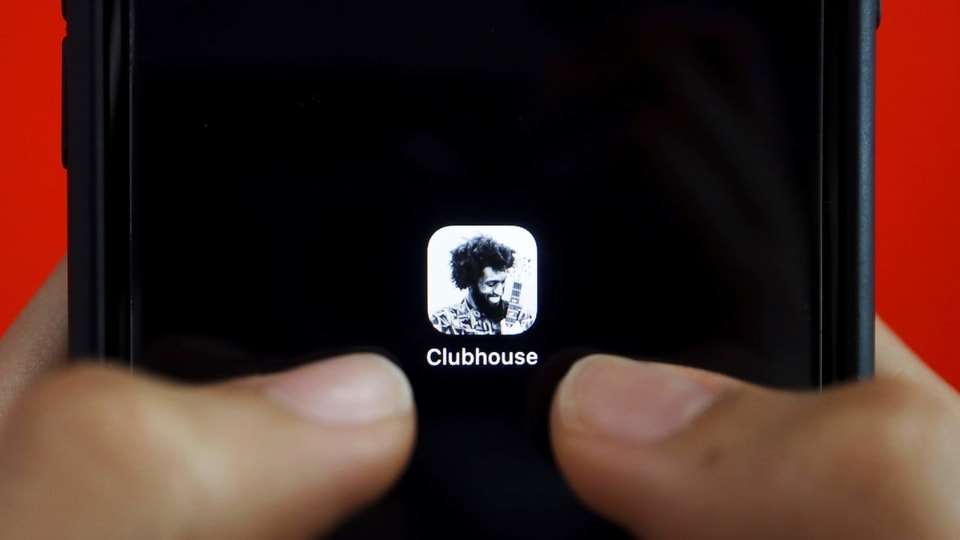Clubhouse won over Elon Musk, now it’s conquering the world
The buzzy chat-room app is beating Instagram, TikTok, Zoom and WhatsApp in App Stores around the world. And that’s a good thing.

“This is awesome. I didn't even know it existed a week ago.” That's how a lot of people are reacting to Clubhouse, the social-media startup that's becoming a sensation. Except in this case, the new fan was Elon Musk, who had just made his first appearance on the app, a voice-and-audio driven platform that lets people hold live discussions based on any number of topics and interests, with thousands sometimes in attendance. Musk was a Jan. 31 guest on “Good Time,” a talk show co-led by a panel of venture capitalists and a Facebook Inc. tech executive. Days later, Facebook Chief Executive Officer Mark Zuckerberg made a surprise appearance on the same program. Last month, I wrote about how Clubhouse was poised to become the next big social media powerhouse, citing the doubling of its weekly active user base to 2 million over a couple of weeks in January as a sign of its booming popularity. This latest wave of influential new users — from technology titans such as Musk and Zuckerberg to political figures and leaders in entertainment — is driving another wave of exponential growth for Clubhouse, not only in the U.S. but around the world.
On Sunday, co-founder Paul Davison said the service reached 10 million weekly active users, which means its user base has blossomed fivefold in a month. These numbers are all the more impressive given that the app still requires an invitation from a current user and is available only on iPhones (an Android version is planned). Davison also noted that overseas markets were key contributors in the company's latest surge, with the app rocketing to the top of the App Store charts in dozens of countries. There may be profound implications.
According to mobile-app analytics research firm App Annie, Clubhouse reached No. 1 at Apple Inc.'s App Store in more than 30 countries this year, meaning it is now a more popular download than Instagram, TikTok, Zoom or WhatsApp in those markets. It is not just one geography either: Clubhouse is doing well across cultures, be it South Korea and Japan or Germany and Italy.
What is most striking is Clubhouse's success in areas with more autocratic governments across the Middle East, Central Asia and Eastern Europe. This may be an important development as it shows the tremendous thirst for open audio-based social conversation inside more authoritarian countries. In recent weeks, I have spoken with several users based in the Middle East. They were all extremely curious about how the rest of the world works while also extolling the vibrancy of Clubhouse discussion rooms in their respective countries. One person in Saudi Arabia said there were hundreds of rooms — some with thousands of participants — talking about political and social issues. These kinds of live gatherings would be difficult if not impossible to hold in person.
The intimacy and back-and-forth nature of the voice-based medium on Clubhouse may be a game-changer for political discourse. The one-on-one audio conversations fostered by the platform encourage relationship-building in a way that text-based social networks such as Twitter and Facebook can't. And because there are no official records after discussions end, it will be more difficult for authorities to curb or censor specific topics. That may lead to easier mobilization and coordination of new movements. In this way, it's even possible that Clubhouse may finally help fulfill the promise of the “Arab Spring” demonstrations from a decade ago.
That potential hasn't gone unnoticed. Earlier this month, users based in China noticed they could not access the service without using workarounds such as virtual private networks to get around the country's firewall. It suggests China has decided to block access to Clubhouse. But as my colleague Tim Culpan wrote, the generally cordial political discussion and sharing of viewpoints among thousands of Chinese-speaking people around the world for a few weeks exemplified the best of what the platform could be. While similar restrictions may spring up elsewhere, I suspect many countries that allow Facebook and Twitter will keep the doors open for Clubhouse because of its rising popularity.
Clubhouse's recent success does bring its own set of difficulties, including growing pains as it builds out its infrastructure to serve its rapidly growing user base. Over the past week, the app frequently has become glitchy and unresponsive nearly every day. Davison has said the company has slowed the development of new features to focus on keeping the service running and hiring new staff. And it is only a matter of time before Clubhouse will face serious trust and safety problems as it deals with the rising tide of charlatans and bad actors who may increasingly try to inhabit the platform.
I am optimistic that Clubhouse will become a platform of choice for healthier conversations compared with other social media platforms. The main problem with the traditional players such as Facebook and Twitter is that their advertising-focused business models incentivize the worst types of content. Because they generate more revenue from increased page views and ad impressions, they are more likely to turn a blind eye to conspiracy theories, harassment and misinformation that drive the most engagement on their platforms. Further, binary angry rants on Twitter and Facebook tend to get amplified over nuanced substantive discussions.
Clubhouse, on the other hand, is targeting a different model. From the beginning, the co-founders have said they won't pursue advertising to generate revenue because it might lower the quality of conversation and lead to bad behavior. Instead, the startup plans to pursue a transactional model where users can pay speakers directly through tipping, subscriptions and event ticketing. It's the right move.
Many corners of the social-media world are toxic, especially where people are able to fire off broadsides anonymously from behind their screens. But people tend to interact more politely in live conversation; Clubhouse may turn out to be the perfect antidote to the contentious climate. The startup's game plan may be good for business, too. With its stunning emergence this year, Clubhouse has already become the biggest U.S. social-media success story in nine years after the Instagram, Twitter Inc. and Snap Inc. era. The only other new app to rival its recent ascendance is ByteDance Ltd.'s TikTok — which, notably, is also known for its feel-good vibes. Clubhouse may surpass its U.S.-based peers over the next few years if it can truly perfect a better collegial environment on the internet.
Catch all the Latest Tech News, Mobile News, Laptop News, Gaming news, Wearables News , How To News, also keep up with us on Whatsapp channel,Twitter, Facebook, Google News, and Instagram. For our latest videos, subscribe to our YouTube channel.


























